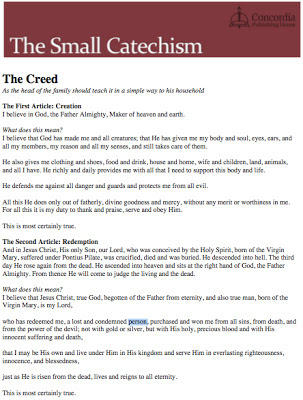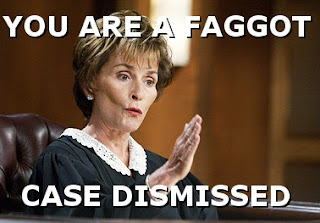The irony of those lines penned by John Sullivan Dwight in 1855 is the horrible, bloody history of the world which soon followed in their wake, mocking them more loudly with every passing decade, from the American War Between The States through the murderous World Wars right on to the present-day, but purposely-ignored, inhumanities of man in Africa, China and the United States.
Yes, in the United States, where over 50 million unborn have been slaughtered in the last 40 years while we go about our business, often go to church and generally think we enjoy ourselves, and Francis Fukuyama tells us with a straight face that thankfully we no longer engage as a species in montrous projects of social transformation.
People who say, as
this one does, a Roman Catholic named Howard Kainz, that the world is no longer
"in the condition it had been in for most of human history" because in
"the Church" God
"provided a firm basis for Christian life" do not have their eyes open to the sorry facts of the world. Religious denial of reality is no less pernicious than the ideological sort, say, of Marxism, which may have something to do with the fact that the former often prepares the way for the latter.
If we are not still in sin and error pining I don't know who ever was, or why or how they were ever redeemed from it. If "the fear of the LORD is the beginning of wisdom," it is not self-evident that we have it.
The Protestants, at least, helped begin the process of recovering the reality of man's sorry state, beginning with Luther's open hostility to the denial of reality implicit in the Catholic tradition, most famously that in the purchase of absolution a spiritual difference was made between the one who bought it and the one who didn't. If the Catholics are still afraid of this all these years later, as Kainz is, they are right to be, because Protestantism actually means death to all such ideology, if but for the fact that it has succumbed to it itself. Carried through to its logical conclusion, Protestantism would finally detect in Christianity's own origin the denial of reality which is the seed of its own destruction, but by and large this has not happened except among some academics, starting with Albert Schweitzer, whose long but thin line of followers bears witness to the recalcitrant inelasticity of human nature.
If we were to be honest brokers of the essential message of Jesus, we would admit that it is followed by next to no one claiming the name Christian because it cannot be, at least for very long, not without being possessed of the fundamental conviction that God is about to bring the world to final judgment:
"Repent, for the kingdom of heaven is at hand."
Christians today run away from that message and all the texts in the Gospels which support it, not in the least because Jesus was tragically mistaken about the future, as disappointed true believers perennially discover. To have anything to do with it is to associate error with deity, and this cannot be allowed, for the obvious reason. But Christians also run away from true repentance because if it were followed, they would not be able to utter all this nonsense about leading "the Christian life" while holding down jobs, paying off mortgages, entering into marriages, raising families, enjoying relative ease and saving for a "safe" retirement.
"So likewise, whosoever he be of you that forsaketh not all that he hath, he cannot be my disciple."
To repent would mean turning one's back on all this, on one's former way of life, with a desperate urgency which does not exist.
"But God said unto him, [Thou] fool, this night thy soul shall be required of thee: then whose shall those things be, which thou hast provided?"
Accordingly the urgency has been transformed in the wake of the failure, spiritualized, internalized and specialized, as in the special calling to monasticism practiced by the few, but even that is now nearly forgotten, its last bastion the priest's call to celibacy. Luther himself was close to the original understanding, though he did not follow it himself and thus contributed to the continuation of its "spiritualization":
"And take they our life, goods, fame, child and wife, Let these all be gone, they yet have nothing won; The kingdom ours remaineth."
Faint echoes of this message have been heard in living memory, for example in the popular 1965 film "The Sound of Music" where we see a young woman torn between her feelings of love for a man and her desire to renounce the world, not for an imminently coming kingdom and judgment, but for a life closer to God in the convent.
In 1933 Oswald Spengler reflected correctly on this residuum of the original teaching, now divorced from its apocalyptic setting in the modern "spiritualized" consensus, that
Christian morality is, like every morality, renunciation and nothing else. Those who do not feel it to be so are materialists. "In the sweat of thy face shalt thou eat bread" means: do not regard this hard meaning of life as misery and seek to circumvent it by party politics.
But if the Marxists try to circumvent the "hard meaning of life" by party politics, the Christians try to circumvent it with their notions of the realized kingdom of God in the Church and its sacraments, where the vagaries of existence are spiritualized away into a denial of reality no less mendacious than the failed achievements of Soviet five year plans.
We are no closer to becoming 2 Peter's "partakers of the divine nature" than we are to Trotsky's "superman" who "will become incomparably stronger, wiser, more subtle."
The way forward for people of faith is to stop denying reality, and to begin by saying, "God be merciful to me, a poor, sinful being."
"The sacrifice acceptable to God is a broken spirit; a broken and contrite heart, O God, thou wilt not despise."










